Florina`s Journey
Have you ever wondered, what is the story behind the women that you see begging on the street? Many migrants are pushed out of their home countries with the pull of a better life in another. But sometimes it is not as simple as it may seem.
Today, we share the story of Florina:
Florina, the daughter of a cleaning woman and a street musician, grew up in the outskirts of Bukharest, Romania. She went through primary school but could not continue her education as she had to help her parents generate additional income. She found sporadic jobs such as cleaning houses and toilets in public places, but it was not enough to make a living and support her family.
Music has always been her passion, and being influenced by her father, she managed to get a job in a downtown bar in Bukharest as a singer in the hope of making more money to support her family. There she met Theodor, who she end up falling in love with. He promised that he would find her a job in Spain through some friends, and he would join her as soon as she was stable. After a lot of persuasion Florina, because she didn’t want to leave her family, she accepted and met with Theodor’s friends and five other girls at the airport.
Once she arrived in Madrid they requested her passport to formalise the job permits. They then took her and the other girls to a club where against their will forced them to become prostitutes. She did not dare to leave the club, as she was unaware of her rights of living in Spain, despite being European citizen, and was often told that she would be expelled from the country.
After a few months, she discovered that she was pregnant and decided against the odds to take the risk and fled from the club overnight. She was on the streets for a few weeks when some people came up to her and told her about an NGO that helped women that had been sexually exploited.
Today, Florina and her baby are living in a women’s house in Madrid, where she is teaching music to immigrant children.
Unfortunately, Florina’s story is one, of many, who are tricked and forced into a life they wouldn’t choose for themselves. Florina is an example of being influenced by the push- and pull factors which influence why people migrate from their home countries. The reason why we have shared hers with you today, is to encourage you to take a step further and to think of the story behind the people.
Florina is victim of circumstance but at the same time she is not defined by this experience.
Written by the L.A.N.A.
Reflections on a successful and challenging Supply Chain Seminar
“This has truly been a good seminar. I’m satisfied with the attendance, which is way more than our last one 5 years ago. We have had people from different brands and audit companies present. During our seminar, I got in touch with some external potential members who signed up, because of the fact that they are so small, and are in urgent need to improve their supply chain. Belonging to a large organization that helps in doing this, is one of their main desires.
But when considering the problems we’ve spoken about in our previous seminar, I think there hasn’t been much improvement, especially because we have noticed a tendency of factories to hide their real situations. This has been the case when some of accredited audit companies carried out announced visits. During the unannounced audits we were surprised to hear how the real situation was. So I feel that we have still a long way to go.
As a result of the panel discussions that were held yesterday and also this morning, we noticed also that there are repeated issues with inconsistent information, long working hours and low wages. In spite of the mechanisms that we have in place to avoid these practices from happening, we notice that the audit practices are mere a plastic shield. Nobody questions if they solid enough or if they have to be improved. For the next 5 years we will design new methodologies, according to the consultation sessions we have held for the past 2 days, in order to improve tools and mechanisms. But there is something missing. We need to be able to reach to the root of the problems, but there has to be a better way to discover what these problems really are.
Some member of ours reinforced something that we’ve been aware of all along, which is that lately consumers are the ones pushing towards a more sustainable supply chain, or not? Well yes, because they are more aware of bad practices and want to ensure that the clothes they wear don’t come from a sweat shop. But if brands are aware of this matter, when reaching out to factories to improve the working conditions, to later communicate their efforts to the outside world, is it Public Relations or is it real risk control management? And no, because of the existing fast fashion; consumers express their wants and needs, which are responded by brands, by putting pressure on for example the factories. The discussions between members in our audience were agitated at this point. Some people felt attacked, others misunderstood…..
During the lunch break, a brand representative came up to me, and expressed his grief because they want to do the right thing, but just doesn’t have enough resources and budget to carry out regular audits. Besides, he misses some information which is relevant for him on for example what factory workers need and how he can improve their condition.
I better get back to the stage now. During the 5 minutes closing speech I’ll point out
that our priority is to build a mechanism, a channel to allow the brand to receive direct information; real voices from the workers. The workers should be the mirror of the factory’s labor conditions. They are the ones that can provide direct and impartial information. But at the same time, they should know what they have the right to! This is the message that I want to get across at the end of the seminar. We need to work towards a method to manage risk on a reliable way.
The way I’ll present this idea will motivate our members, I’m sure!”
– Thoughts by Tony Sundermann
Tony Sundermann, CEO of the Multi Stakeholder Coalition: United Brands for a Responsible Textile Supplychain (UBRTS), is concerned after the feedback and consultation sessions he has received during the seminar. Something has to be done to improve labor conditions in factories, and one thing is for sure; the workers are the ones that need to be heard. What tool or mechanism will Tony propose?
Find out more next week.
“Heroines of the Supply Chain”
Juan Juan Chen
Eva Capellán
Rocío Dañino
Esther Sedney
What’s happening to Xiao Deng’s (小灯) light? Is it shutting down?
“It’s already 5:30 in the afternoon. I was hoping to go to my room and have a relaxing weekend, watching my favorite t.v. series. But we just got a rush order and I’ll have to stay until maybe 9 o’clock tonight. Since a client of us has promised a new line of clothes in Spain by next week, we have to be real quick. But hey!, more hours mean more money, so I’m cool with that.
These past days have been a little hard though. I tripped on a pile of clothes last week and hurt my knee. Besides, my lower back and shoulders hurt so much! These 3 years in this factory have taken their toll on my body. I haven’t been to the doctor because I don’t have an insurance. In times like these, I wish I had become the elementary school teacher I always wanted to be. But after my graduation from high school, I figured I better start working to support my family. I’m sad and feel down. I’m not living up to what my name means: Little shining light. I better go back to work now. My 1,5 hour during lunch break is over, and we still have so many blouses to sow today.
In between the sowing, I heard some colleagues commenting about our salary. They find it too low. I really don’t know what to think about that. I wonder if it’s true. But I’m afraid to ask. They wanted to complain about this. To who, they have no idea.
I’m tired, but happy. After reaching the factory this morning at 7:40, and being here for more than 14 hours, I can finally go back to the dorm, to my 4 roommates. I’m looking forward to playing Candy Crush and Angry Bird on my phone. Oh, I just remember. I can try out Tian Tian Fuweng, the new game I downloaded yesterday. Tian Tian Fuweng means Everyday Millionaire.
That’s what I’ll be one day, hahaha. But before that, I want to start a family. 22 years; the perfect age for that! Today, I ran across Yinda, from Pingyao, my hometown. He works at the packaging department. He’s so nice, and kind. The two of us could make a better future together.”
A better future includes good working conditions too! What Xiao Deng doesn’t know yet is that she has the power to change and improve these working conditions. By knowing her rights and raising her voice she can have the real future she deserves!
Could playing games possibly help her in this quest?!
Stay tuned!
“Heroines of the Supply Chain”
Juan Juan Chen
Eva Capellán
Rocío Dañino
Esther Sedney
The Era of Collaboration: A Powerful Revolution
There are many good things happening in the World. Even if we see the Television news or read the traditional news papers and end up totally depressed, we just have to open our eyes a little bit to discover that there are actually a lot of good things to celebrate and be happy about.
One of my favorite “good news” is that we are shifting from an era of competition to an era of collaboration.
Share. That is the key word. We just have to open Facebook and look at that small, yet powerful, blue button that allows us to share information, knowledge and fun stuff with other people.
Younger generations see sharing as a natural thing. It is very simple; if you read something useful, you share it with other, so that everyone who is interested in the topic, can increase their knowledge about it. However, I don’t think is crazy to say that this sharing mentality was not always common, and that one of the most predominant behaviors of the last century was Competition. From biology, to business to politics and nations, everything was conceived as “a war” where only one wins.
On the contrary, nowadays Collaboration is starting to become a predominant behavior. Words that hardly existed 2 decades ago, such as Cross Sector Partnerships, Multi stakeholder alliances, Business coalitions, Crowdsourcing, Crowdfunding, Coworking Spaces, or Co design, are now being more and more used, and are becoming trends. These transformational collaboration patterns are now shaping our reality.
This new philosophy has led to the creation of organizations that are designed around a culture of generosity. Big companies [1]are starting to have co creative and crowd sourcing initiatives in order to engage with costumers and society and gain access to creative ideas for them and for the world. And more important, small enterprises and social enterprises are being born with this philosophy, through collaboration and for collaboration, working together with others to tackle local and global problems. These initiatives will play a key role in solving the world’s future challenges.
[1] IBM, Unilever, Nike, etc.
Collaboration = New Revolution
Collaboration and technology have allowed our ideas to travel around the world and “have sex” like never before. But, why is this relevant?
As Matt Ridley said in a TED conference[1], the “meeting and mating of ideas” is what contributed to the evolution and progress of the human race.[2] Interconnection of people, communication, sharing of ideas and collaboration, are the base of technological progress.
If we want to solve the world’s problems, we must collaborate and share, so ideas can combine and solutions can be found.
The potential of Crowd sourcing
Crowdsourcing is the process of obtaining ideas (or content) by soliciting contributions from a large group of people, especially from an online community. [1]
Today’s technology (internet, mobile phones) have showed us that we human beings are more than just passive consumers; we like to be proactive, to create, to apply our talents, to engage with a task and a purpose, to enter into “a state of flow”[2], do something and share it with the world for others to enjoy. The spectrum of collaboration is wide: From people that create “memes”, to people that participate actively in platforms of solutions for global challenges (civic value).
As Clay Shirky states, [3], the combination of technology, collaboration and human generosity (motivation to share our talent and free time) is making possible that ideas that contribute to solve social problems, travel very fast around the world, in order to be replicated. People are willing to engage and help. He calls this magical mix “cognitive surplus”, which has a huge potential since there are more than 1 trillion hours a year of participatory value to be used.
Can you imagine what could happen in the world if every person dedicated 1 hour a week to contribute to solve a global problem just by giving ideas??
So, to summarize, we are at the beginning of an era based on collaboration (instead of competition); this is great for sharing and combining ideas; technology is on our side and we have a lot of spare hours to use. If you Google “crowdsourcing” you can clearly see that is next to problems, community and solutions. Let us use those hours in a positive way through collaboration, for collaboration; to find the solutions we need to create a better world.
[1] http://en.wikipedia.org/wiki/Crowdsourcing
[2] Martin Seligman, founder of Positive Psychology movement talks about “flow” in his books “Authentic Happiness” and “Flourish”.
[3] http://www.ted.com/talks/clay_shirky_how_cognitive_surplus_will_change_the_world
[1] http://www.ted.com/talks/matt_ridley_when_ideas_have_sex
[2] Labor specialization and trade gave us more time to do other things, think about other matters and have more ideas, which led us to prosperity. The exchange of ideas between different cultures, are at the base of innovation.
A Journey for Nothing ?

Source: The Guardian
As most of you have probably noticed, the media these days is full of headlines talking about the migration problem we are facing in Europe, the recent tragedy in the Mediterranean Sea being one of the biggest migration tragedies to date. The continent is confronted by a rapidly escalating migration crisis – governments both National and Regional (EU) are struggling to cope with this problem and have difficulties finding a general consensus over the shared responsibilities and actions to be taken.
Source: BBC
But have you ever questioned yourself why this is happening? Do you know why millions of people are deciding to take this deadly journey? Do you have any idea how they are treated once they survive they journey? Is migration really a problem…..or is it an opportunity?

Source: http://goo.gl/nnhZ6u
With these questions at the back of our minds we embarked on our own journey to get answers. Throughout the research we have done, some of the stories have left emotional scars and some have been sources of inspiration and this has encouraged us to dig deeper and get a better understanding from the perspective of those who have undertaken it, what circumstances the migrants live in, how they are treated throughout the journey and also what their life looks like after finally receiving the “golden ticket.”
Our aim is to develop a tool to assist migrants as they embark on their new life. We do not just want to help them thrive but also want to be part of their journey towards a better life – the life they were initially aiming for.
written by Anna, Annette, Lucia and Nada
Reflection: Is CSR 3.0 in SMEs simply common sense?
In the recent evolution of CSR towards the 3.0 approach we seem to be learning that SMEs (small medium enterprises) that have integrated this modus operandi into their way of doing business are achieving better results than those that have kept the traditional model. An example of these could be Unilever or Lush, which have improved their public image and performance in the market.
As customers, people are increasingly concerned about the practices of the companies that provide goods and services to them, giving a competitive advantage to those who carry out the best practices in an increasingly competitive market, where not only price and quality weigh any more.
As potential employees of SMEs, we look to work at businesses that provide not only the basic rights to their workers, but those which take a step or two further to guarantee their wellbeing. This of course benefits the company: the more candidates willing to work for them, the greater their possibilities to hire the best ones. And as employees we will be far more productive if the environment helps, thus benefiting the company.
As stakeholders in general we will support the companies that do well to our community, values such as transparency and stakeholder participation are increasingly appreciated amongst society. So why are not all companies making this change? Why is the transition towards CSR 3.0 being so slow? Will the companies that are not adapting survive? Companies should realise once and for all that nobler economical development is a win-win for themselves and their stakeholders.
Or maybe the people from our sector are being utopic and idealising this method?
As integrants of a growingly globalised world we should look for the common and greater good.
So, does it simply not make sense to embrace it if it proves beneficial for most?
IMSD into practice!
Today I can proudly announce that I am the owner of my first sustainable sandals. Why sustainable? Because besides the fact that they are mostly made out of natural materials, the packaging is super small. This company keeps its craftsmen in mind by ensuring they get a fair pay, medical cover, 13th salary (all things that may seem logical to us, but sometimes the reality is different. Especially with the demands of the Western World being met by people in Asia…..). The Ethical commitments are among others, visiting the production site often and making sure part of the profits made are destined for improving the life of the workers and negotiating raw materials directly with suppliers. No middle men! I actually feel good. I’ve bought my first responsible, sustainable sandals. And they were not even expensive!
What are you wearing today?
What are you wearing today? Do you know the brand? Do you know where your clothes have been manufactured? Do you know who made it and under what conditions?
After the Rana Plaza disaster on April 2013, where 1,127 workers were killed, the textile industry has been on the spot.
This is not really new. Since the 90´s, when the large clothing brands started outsourcing their production to developing countries with cheaper costs, the textile industry has been seriously questioned. We all probably remember the Nike and GAP scandals in the 90´s and early 2000, which affected the companies’ credibility and reputation.
Source: Team Creation
The textile global picture has changed a lot in the last 10 years. The countries that manufacture and export clothes, and the ones that import, are now different.
China is the main player of the game, with 32% of the total global share of exports, followed by the EU. However, other players are increasing their global presence significantly, such as India, Indonesia, Malaysia, Pakistan and Thailand, accounting for more than 20% of global share.
Source: World Trade Organization
More than 10 years after the mentioned scandals, the textile industry still has to deal with serious supply chain challenges and global concerns about labor rights and workplace conditions.
The Rana Plaza event was, of course, really extreme. However, labor rights are being violated in different levels, from forced labor, child labor and health and safety, to hour of work and freedom of association and collective bargaining.
- 1,1 Million people die from occupational accidents every year in Asia.
- 122 Million Children from 5 to 14 in Asia are working and not assisting to school.
- 1/5 of factories in Asia pay late salaries
- ½ of factories don’t pay fair wages, overtime and social security contributions
So, what are you wearing today? This question adressed to consumers is one that needs to be raised higher up in the supply chain of the garment industry: What is your Brand doing to ensure your peace of mind??
Sources of data:
- ILO ilo.org
- “How fair are wage practices along the supply chain” – ILO Better Work Conference 2011 (100 factories in 10 Asian countries)
SHORT GUIDE TO COMPLETE SUCCESS
— Inspired by Grigoriy Oster —
And if different ideas
Enter head without knock –
Close all your doors and windows
Because they should be well-locked!
1. World is cruel. Think only about the “I”.
2. Focus on yourself. Family and friends are weakness. Neighbors are rubbish.
3. Grab all you see. You will need it all after. And even if not… all these silly little people don’t know what to do with their lives. Save them from doubts – keep everything for yourself.
4. Keep climbing the career ladder walking over corpses – they all deserve this. Become powerful and rich.
5. When the heart-warming number of zeros in your bank account filled with saved/earned/stolen/deducted/inherited/………. (underline appropriate) money will start perturbing your bank or investment manager – hide the money to an offshore account. Better to several.
6. And the important never become a social entrepreneur. The reasons are simple to explain:
- Social problems are fault of those who face them. Noone helps you to solve your problems. Then why would you help anyone to solve their. They should have thought before. All their problems come from their past mistakes.
Conclusion: They deserve to suffer. - Even if in an exclusive moment of weakness you would like to help somebody to address their problem, there are too many social issues in the world. Which one to choose? How to choose? But can solve it alone? Ah, too many obstacles.
Conclusion: Just leave it and come back into jacuzzi.Asked yourself a foolish question?
Answer’s foolishness ahead
Better ask it to your neighbours
Let’s explode their head!
Grigoriy Oster
-
Social entrepreneurs want to bring change into the world. Into the world where you have everything you want to have and much more, into the world where the power of you and your money is unlimited. You are so happy with your greediness and selfishness. The change can destroy all your world. Say NO to change in the world. Say NO to those who supports any change.
Conclusion: Social entrepreneurs are enemies.
- They say there are also social intrapreneurs. They would present social issues inside their company in order to persuade the CEO that the company needs to address the issues. Go ahead! Join them if you want to be shouted at by your boss and laughed at by colleagues.
Conclusion: Social intrapreneurship will ruin your career. - Social entrepreneurs are said to become passionate (in other words little crazy) about any idea they address. Lose your mind because of helping people?
Conclusion: Social entrepreneurs are insane.
Seriously, after all any questions left?
7. When made the right choice in favor of money, power and jacuzzi keep in mind the last hint: spend all the money you can during your life. Do not leave a penny after your death. Just imagine – someone could invest it in something as horrible as social entrepreneurship!
*** *** ***
* Hopefully my humor with a portion of nonsense all the way through this post is understandable.
**For those who took the post seriously – please, leave a comment. I am simply curious.
The Importance of Motivation in Social Enterprises
First of all, I would like to quickly explain what exactly a social enterprise (SE) is. This company is addressing a social problem by using entrepreneurial issues. That way it is trying to make a change and have a successful impact on the society.
 One would think that a social enterprise is self-motivating? It addresses a social issue so the employees should be highly motivated to reach the goal, solve the problem and help. However, at the end of the day, the way a social enterprise works is the same way a “normal” company works. This means, that there is work that one might not like to do and all sorts of problems can occur. This is the reason why motivation in a SE is just as important as in every other company.
One would think that a social enterprise is self-motivating? It addresses a social issue so the employees should be highly motivated to reach the goal, solve the problem and help. However, at the end of the day, the way a social enterprise works is the same way a “normal” company works. This means, that there is work that one might not like to do and all sorts of problems can occur. This is the reason why motivation in a SE is just as important as in every other company.
According to different studies, unmotivated employees:
- Take twice as many sick days
- Are five times more likely to leave within the next year
- They don’t innovate, solve problems or take responsibility
Furthermore, the studies evaluated that:
- Only 30% of all employees worldwide feel inspired and engaged by their careers
- 56% of all employees are less likely to recommend friends use the product or service
they represent
These facts demonstrate that motivation should definitely be addressed in every company.
How to motivate employees?
There are different aspects that have to be taken care of but in general every SE and employee has to be looked at individually regarding their circumstances. However, there are some common motivational aspects that should be considered in every SE.
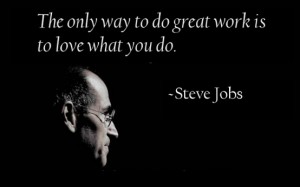 First of all, it is passion that is the basis for every success. Only if enthusiasm and emotions are involved, employees get involved and can be addressed by incentive programs of companies. According to statistics, companies using incentive programs reported a 79% success rate in achieving their established goals when the correct reward was offered.
First of all, it is passion that is the basis for every success. Only if enthusiasm and emotions are involved, employees get involved and can be addressed by incentive programs of companies. According to statistics, companies using incentive programs reported a 79% success rate in achieving their established goals when the correct reward was offered.
Financial incentive is not the way to retain employees and motivate them to work hard. If a company cares about retention, they should strive to provide a good company culture in which employees feel valued with the flexibility to contribute meaningful work regardless of their role.
Employees need to feel like they are a part of a community. Social enterprises must show that management is looking to solicit ideas and provide a working environment in which people are comfortable working in. For instance, the SE can decide about the design of the office itself or the offer of working from home. It can also include social outings and events that should take place regularly to build a good team spirit. If this is done successfully, employees work harder offering smart ideas as well as critical feedback for continuous improvement.
Furthermore, every employee should have a clear idea about the purpose of the social enterprise, an individual goal as well as well-defined tasks. Therefore, I would like to compare that work to a sports team. In a sports team, the goal is clear: to win – to shoot one more goal than the other team, be faster or have more points at the end. Apart from that everyone should have their individual goals, where the different tasks are well organized. Some do have to defend, others shoot goals etc. but everyone has to enjoy it and be committed. At the end, the team usually succeeds that is most motivated and has the strongest will. Hence, the concept on a SE should be similar to ensure a success and impact on the society.
Moreover, the employees have to receive appraisal. That way it can be ensured that the tasks are clear and achieved and it can be agreed on an aim. It does not mean just giving positive feedback but might also know what they have to improve. The employee should get the feeling that he is having responsibility and that his work is appreciated. Once a work is done very well, it should than be highlighted and celebrated.
Overall, the more motivated the employees of the SE are, the more successful is the enterprise. Statistics have proven, that properly structured incentive programs can increase employee performance up to 44%.
So, keep you and your employees inspired and motivated at any time! Therefore, care has to be taken of every single employee because “one shoe does not fit all”!





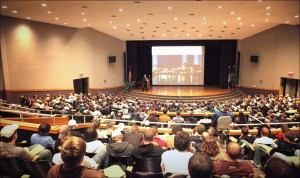
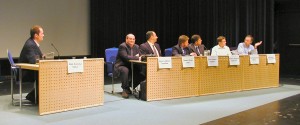
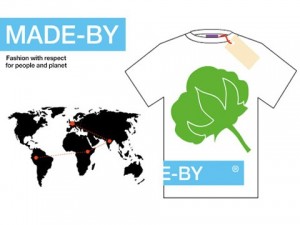
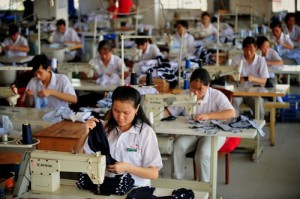


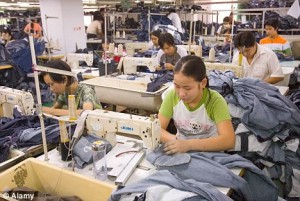




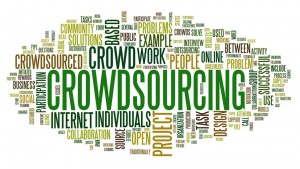
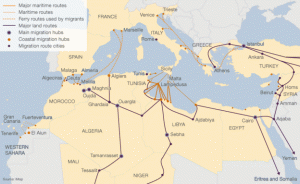
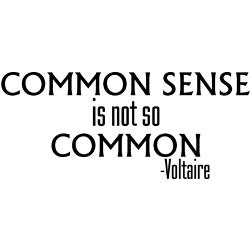

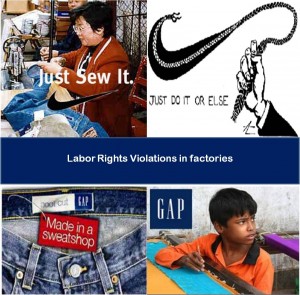
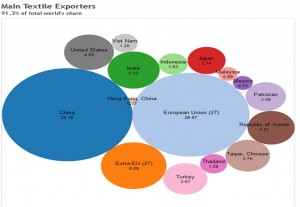
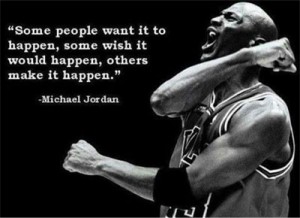

.png)
].gif)
.png)
].png)
].png)
].png)
.png)
].png)
.png)
